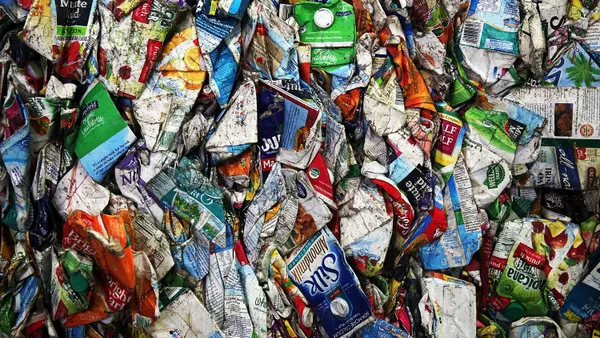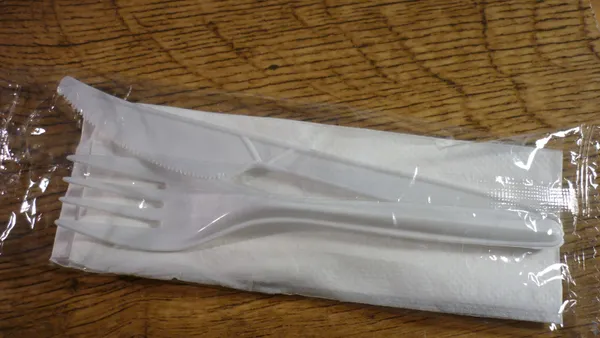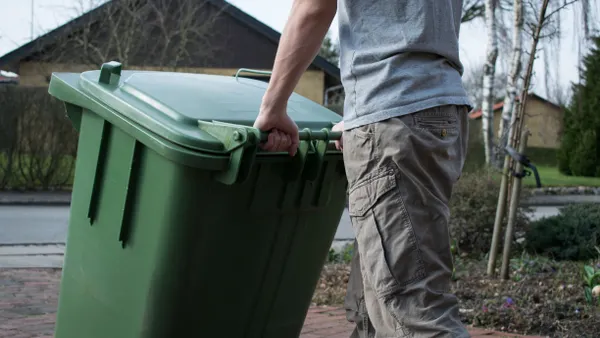Dive Brief:
- Former Gov. Rick Snyder's $69 million Renew Michigan initiative managed to secure funding from the state legislature in December. Rather than raising landfill fees, as originally proposed, legislators reached a compromise to cover the expense with new online sales tax revenue.
- Per HB 4991, state recycling efforts will receive an estimated $15 million in additional funding every year (up from the Michigan Department of Environmental Quality's estimated $2 million budget for FY19). The remaining $45 million will go to brownfield remediation, and $9 million will go to landfill oversight.
- According to the Michigan Recycling Coalition (MRC), potential priorities include market development, education/outreach campaigns and infrastructure improvement. Now, attention is focused on passing an update to Michigan's Part 115 solid waste regulations (circa 1994) to better shape long-term planning.
Dive Insight:
The initiative's successful passage has been described as an unprecedented funding boost for the DEQ's recycling efforts, which only just began to receive stable annual funding of $1 million in FY15. Local and national sources alike believe it may in fact represent the greatest increase in recent memory of any state's recycling budget.
Until Part 115 updates are passed, and new Gov. Gretchen Whitmer's administration weighs in on recycling priorities, it may prove complicated initially to figure out how to best spend this windfall. MRC Executive Director Kerrin O'Brien said Michigan's planning requirements for counties are largely underfunded and disposal-centric. Outside of a few high-performing or more creative county governments, recycling efforts have become limited.
“A lot of expertise that used to be out in the state is not there anymore, and so we’re going to be focused on getting people back up to speed," said O'Brien of initial funding priorities. “It’s going to be the foundation of how we begin to do things differently, how we begin to divert waste to more productive uses."
This will include an in-depth look at market development — but the Part 115 conversation will also have to consider a renewed look at landfill capacity, as Michigan's current $0.36 tip fee tax is set to expire soon. While some industry groups and local governments oppose the increase, MRC believes it to be a necessary step. Lower tip fees are viewed as putting further pressure on financially-strained recycling programs in many parts of the state.
“We don’t want to expand the landfills if they’re not really needed, because we’re doing other things," said O'Brien. “What we find is that our current solid waste policy we're trying to change has really served to overdevelop landfill capacity and keep our tip fees fairly low."
Snyder had once pledged to double the state's recycling rate to 30%, referring to the failed objective as "one of the most disappointing initiatives" of his tenure. When the Renew package couldn't muster enough votes, Senate Republicans reportedly proposed pulling funds from $250 million worth of new online sales tax revenue — the result of a 2018 Supreme Court decision involving e-commerce site Wayfair — to salvage the plan.
While the outcome has been hailed as a major victory, the work isn't over yet. A new bill, HB 4125, was recently introduced to redirect the funding for Renew programs to education and transportation. O'Brien believes there could also be a parallel push to preserve the Renew initiatives by raising landfill taxes after all, but predicts that it will be politically challenging.
Regardless of how this all plays out, O'Brien anticipates an annual — but worthwhile — fight to ensure recycling get its fair share in the appropriations process.
“Now we’ll really be institutionalizing an interest in Michigan in doing more with our previously wasted materials," she noted.











